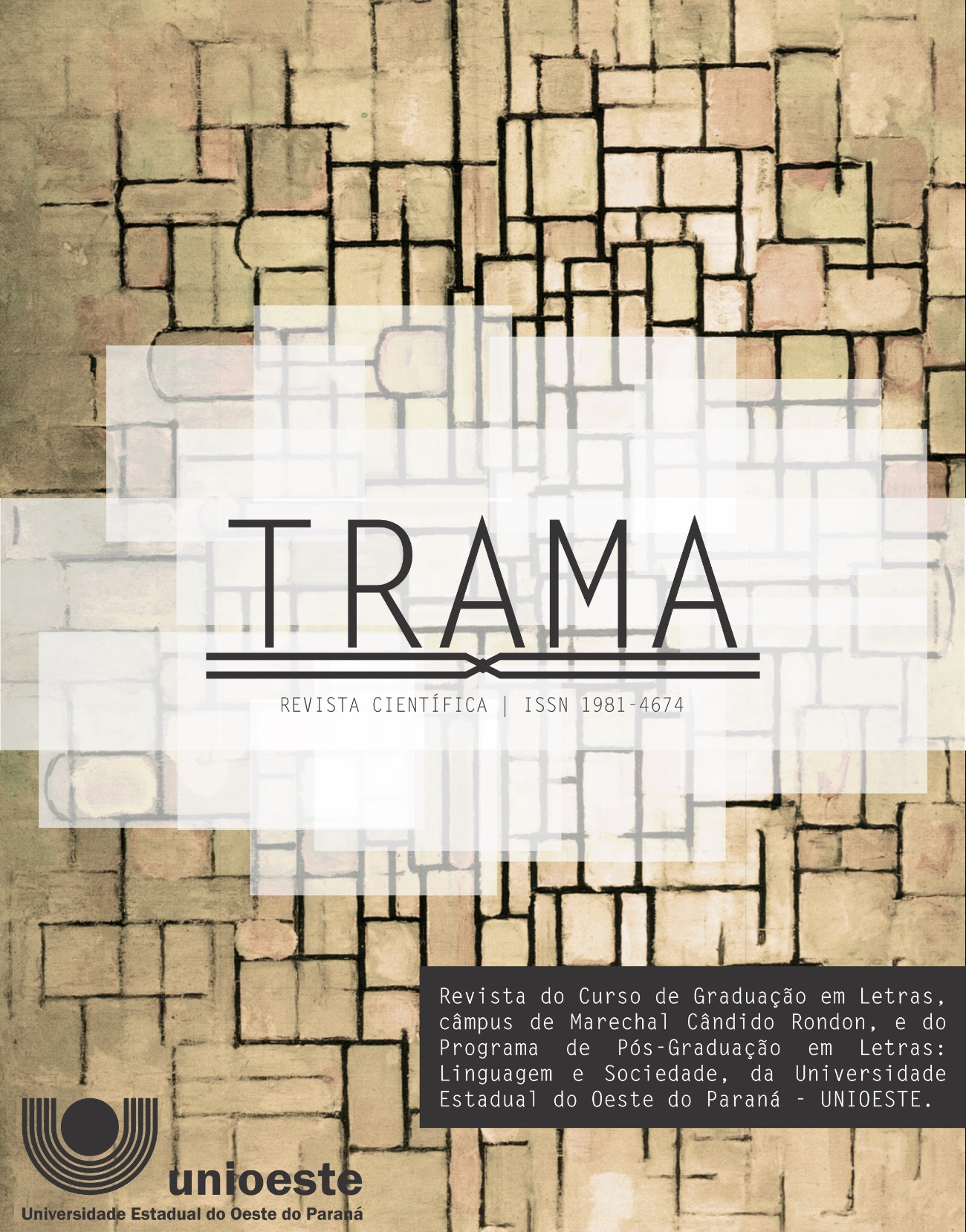O EFEITO METAFÓRICO DE “CABELO CRESPO” NA CONDIÇÃO DA TRANSIÇÃO CAPILAR
DOI:
https://doi.org/10.48075/rt.v18i44.29280Abstract
This research is the result of a Master's thesis that aimed to analyze the discourse about kinky hair in the condition of hair transition and how, from this a woman-profile becomes meaningful). For the analysis, Discursive Sequences (DSs) were selected, telling about types of hair (straight, wavy, curly, and frizzy). The DSs were selected from the digital environment (Veja online magazine, Folha de São Paulo online, parts from a blog text and Instagram social network posts and comments), and here in this essay we have selected only the DSs clipped from Veja online magazine story, "Back to the Roots," published in October 2018. In short, the problematic of this research was to identify which effects of meaning permeate what is said about female empowerment from the "acceptance" or not of natural kinky hair. To perform the analysis, we used the theory of French Discourse Analysis, especially the studies of Michel Pêcheux, and we highlighted in this article the concept of metaphor. This research was qualitative based and of interpretivist approach. Through the analysis of the DSs, we identified a metaphorical shift on the terms "kinky hair", that is, the meanings of the terms depend on the Discursive Formation in which the subject is inscribed. Thus, having kinky hair can mean something "good" and also "bad”. We realize that the hair in use "assume" the strands and carries meanings that echoes the social environment, this is historical and also marketable.
References
BRANDÃO, H. H. G. Introdução à análise do discurso. 3. Ed. Campinas: Editora da Unicamp, 2012.
CATTELAN, J. C. Interdiscurso e Memória: a metáfora e a metonímia em Pêcheux/Herbert. Inédito.
MOTTA, B. De volta às raízes. Veja, Brasil, 19 out. 2018. Disponível em: <https://veja.abril.com.br/entretenimento/de-volta-as-raizes/> Acesso em: 12 fev. 2019.
ORLANDI, E. P. Análise do Discurso: princípios e procedimentos. 12. Ed. Campinas: Pontes, 2015.
ORLANDI, E. P. A Linguagem e seu Funcionamento: as formas do discurso. 2. ed. Campinas: Pontes, 1987.
PÊCHEUX, M. Análise de discurso: Michel Pêcheux. Tradução Eni Pulcineli Orlandi. 2.ed. Campinas, SP: Pontes Editores, 2011.
PÊCHEUX, M. Semântica e Discurso: uma crítica à afirmação do óbvio. Tradução Eni Puccinelli Orlandi et al. 4. ed. Campinas: Editora da Unicamp, 2009.
RIACHO, A. IZA fala sobre transição capilar para o crespo e relembra vez que viu cabelo natural: 'Me apaixonei'. Gshow, Brasil, maio 2019. Disponível em: <https://gshow.globo.com/Famosos/noticia/iza-fala-sobre-transicao-capilar-para-o-crespo-e-relembra-vez-que-viu-cabelo-natural-me-apaixonei.ghtml> Acesso em: 20 fev. 2020.
Downloads
Published
How to Cite
Issue
Section
License

This work is licensed under a Creative Commons Attribution-NonCommercial-ShareAlike 4.0 International License.
Aviso de Direito Autoral Creative Commons
Política para Periódicos de Acesso Livre
Autores que publicam nesta revista concordam com os seguintes termos:
1. Autores mantém os direitos autorais e concedem à revista o direito de primeira publicação, com o trabalho simultaneamente licenciado sob a Licença Creative Commons Attribution que permite o compartilhamento do trabalho com reconhecimento da autoria e publicação inicial nesta revista.2. Autores têm autorização para assumir contratos adicionais separadamente, para distribuição não-exclusiva da versão do trabalho publicada nesta revista (ex.: publicar em repositório institucional ou como capítulo de livro), com reconhecimento de autoria e publicação inicial nesta revista.
3. Autores têm permissão e são estimulados a publicar e distribuir seu trabalho online (ex.: em repositórios institucionais ou na sua página pessoal) a qualquer ponto antes ou durante o processo editorial, já que isso pode gerar alterações produtivas, bem como aumentar o impacto e a citação do trabalho publicado (Veja O Efeito do Acesso Livre).
Licença Creative Commons
Esta obra está licenciada com uma Licença Creative Commons Atribuição-NãoComercial-CompartilhaIgual 4.0 Internacional, o que permite compartilhar, copiar, distribuir, exibir, reproduzir, a totalidade ou partes desde que não tenha objetivo comercial e sejam citados os autores e a fonte.


